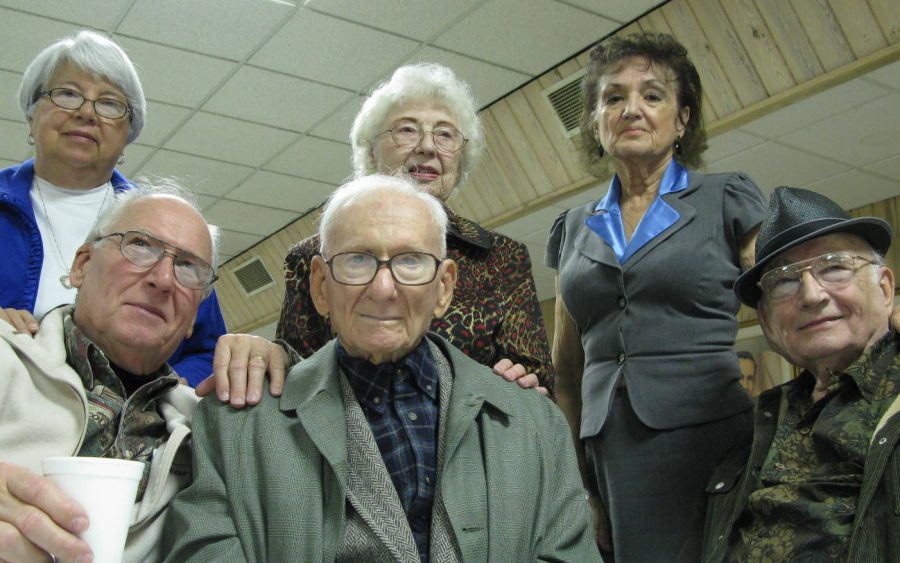Teddy’s Take: age and political power
A group of seniors take an adorable selfie after they vote in their local election.
The United States is an ever-changing landscape. Immigration, social stratification and a large geographic mass all result in one of the most dynamic, demographic-shifting countries in the world. Despite this, the United States government remains incredibly stable, at least in one significant way.
Politicians are old. Like, super old.
Not just that–we have gotten older. The 117th congress (the current one) is the oldest congress we have had in the last two decades. That’s right, 20 years and 10 congresses later, members of both chambers have aged by an average of more than 4 years.
As one might imagine, this can result in a distance between the U.S. government and its younger generations. The average age of a congress member is 58 and the average age of a senator is 64. 3 in 10 gen-Zers and millennials now believe there are several countries who are better than the U.S., harshly juxtaposing the “silent generation’s” astounding 1 in 20 figure.
The average age of a congress member is 58 and the average age of a senator is 64. Wilsonville High School students are anywhere between 45 and 50 years removed from that. But what do students think about this tremendous difference?
“I think that their age group is not representative of our nation as a whole, which isn’t great because democracy is supposed to be as closely representative of society as a whole,” argued an anonymous senior. “This could also provide hindrances because younger generations are going to be more knowledgeable about things that have progressed rapidly like technology, social media and science start ups,” she continued.
The United States has seen this manifest into reality in recent years. Companies like Facebook and Twitter have time and time again been interrogated by members of congress who only have inklings of ideas on their wrongdoings, or don’t even understand general principles of using their sites. This gives these giants rhetorical victories when there are very legitimate problems that could be investigated by politicians–if they knew what they were talking about.
Senior George Peykanu dove into exactly why successful politicians are so old. “First politicians have to commit to local organizing, local fundraising, local activism, and then progressively increase their political repertoire across the board, which honestly you would be lucky to do in 30 or 40 years. So it doesn’t surprise me that the average age is so high.”
Peykanu’s understanding of the time it takes to build a political career is not misguided. Politicians spend most of their lives accruing what it takes to place themselves in the upper echelons of government.
However, Peykanu recognizes that there may be problems with a congress that is older than the general population: “I think that congress representing the views of young people is a pretty pressing and difficult question for the political system to answer, because it’s kind of baked into the system that old people are going to be overrepresented, but simultaneously old people do not have to deal with the same problems that young people do–they often have great amounts of savings and have a different cultural landscape to navigate.”
While age certainly seems like a pressing issue in our politics, Peykanu is right. It’s baked into the system for older people to be overrepresented. To reduce the proportion of older people in congress, you’d need to reform the way people get elected in the first place.
In short, the age gap between congress and the rest of the United States is almost an unanswerable question for the time being, although we are all very much affected by it. The best thing younger generations can do is simply to turn out, vote, go to the polls. A part of the reason so little young people are elected is there are simply less young people voting, less young people politically involved. That’s the first and most important step.











